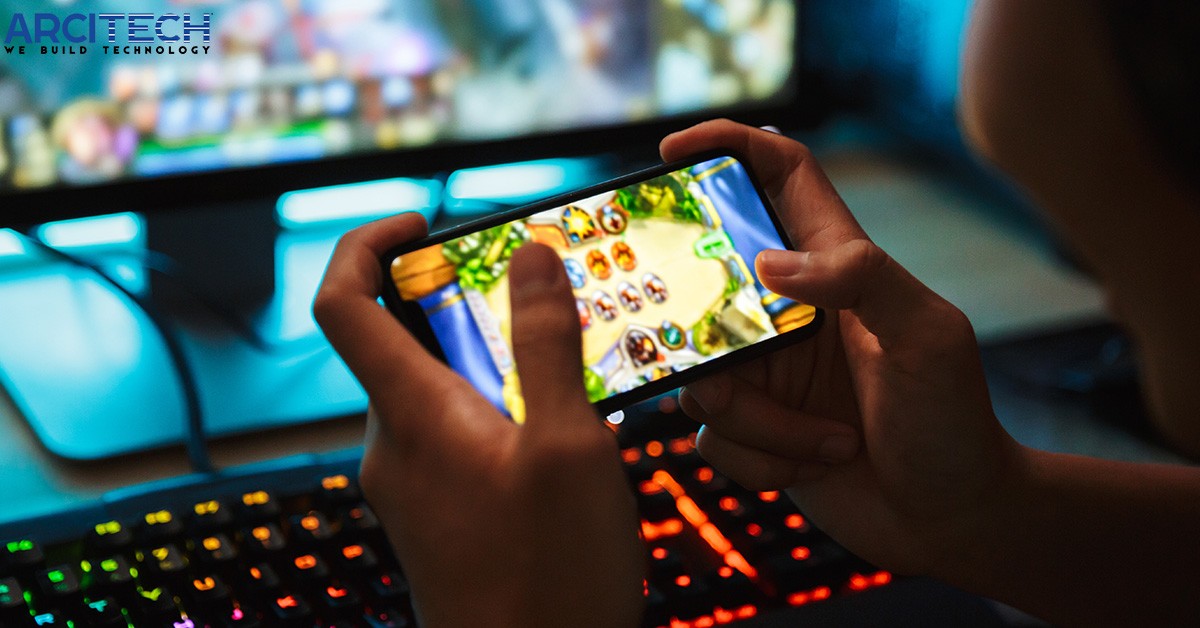Top Mobile Game Developer | Custom Game Development Services

In the fast-paced digital age, mobile gaming has emerged as one of the most dynamic and lucrative industries. With smartphones becoming ubiquitous, the demand for engaging and innovative mobile games is at an all-time high. Businesses and entrepreneurs are constantly on the lookout for top mobile game developers who can transform their ideas into compelling games. This article explores what it takes to be a top mobile game developer and delves into the intricacies of custom game development services.
The Rise of Mobile Gaming
Mobile gaming has experienced explosive growth over the past decade. According to a report by Newzoo, the mobile gaming market is projected to reach over $90 billion in revenue by 2024. This surge is driven by the increasing number of smartphone users, advancements in mobile technology, and the growing popularity of casual and hyper-casual games.
The accessibility of mobile games makes them a preferred entertainment option for people of all ages. From puzzle games and strategy games to action-packed adventures and multiplayer experiences, mobile games offer a diverse range of genres to cater to various preferences. This diversity has fueled the demand for skilled mobile game developers who can create unique and captivating gaming experiences.
What Makes a Top Mobile Game Developer?
Becoming a top mobile game developer requires a combination of technical expertise, creativity, and a deep understanding of the gaming industry. Here are some key attributes that set the best developers apart:
Technical Proficiency
A top mobile game developer must possess a strong foundation in programming languages such as Java, Swift, C#, and C++. Proficiency in game development platforms like Unity and Unreal Engine is also crucial. These tools allow developers to create complex game mechanics, realistic graphics, and smooth animations.
Creative Vision
Creativity is at the heart of game development. Successful developers are adept at conceptualizing original game ideas, designing captivating storylines, and creating visually stunning worlds. They understand the importance of creating a unique and immersive experience that keeps players engaged and coming back for more.
User-Centric Approach
Understanding the target audience is essential for any game developer. Top developers conduct thorough market research to identify the preferences and behaviors of their intended users. This knowledge helps them design games that resonate with players, leading to higher user retention and satisfaction.
Problem-Solving Skills
Game development is a complex process that often involves solving intricate technical challenges. Developers must be skilled in troubleshooting, debugging, and optimizing their games to ensure seamless performance across various devices and platforms.
Adaptability
The mobile gaming industry is constantly evolving, with new technologies and trends emerging regularly. Top developers stay updated with the latest advancements in game design, augmented reality (AR), virtual reality (VR), and artificial intelligence (AI). This adaptability allows them to incorporate innovative features into their games and stay ahead of the competition.
The Importance of Custom Game Development Services
Custom game development services play a pivotal role in bringing unique and tailored gaming experiences to life. Unlike generic, off-the-shelf games, custom-developed games are designed to meet specific client requirements and cater to particular target audiences. Here’s why custom game development is essential:
Tailored Solutions
Custom game development allows clients to specify their exact needs and preferences. Whether it’s a particular game genre, storyline, or design aesthetic, developers can create a game that aligns perfectly with the client’s vision. This level of customization ensures that the game stands out in a crowded market.
Brand Integration
For businesses looking to leverage mobile games as a marketing tool, custom development offers the opportunity to seamlessly integrate their brand into the game. This can include branded characters, logos, and themes, creating a cohesive and immersive brand experience for players.
Enhanced User Engagement
Custom games are designed with the target audience in mind, resulting in a more engaging and enjoyable experience. Developers can incorporate features and mechanics that resonate with players, leading to increased user engagement and longer play sessions.
Scalability and Flexibility
Custom-developed games are built to be scalable and adaptable. Developers can design the game architecture to accommodate future updates, expansions, and additional features. This flexibility allows the game to grow and evolve alongside the client’s business or audience.
Competitive Advantage
In a competitive market, having a unique and custom-developed game can provide a significant edge. It allows businesses to differentiate themselves from competitors and attract a dedicated player base. Custom games are more likely to gain traction and generate buzz, leading to higher downloads and revenue.
The Custom Game Development Process
Developing a custom mobile game involves several stages, each requiring careful planning and execution. Here’s a step-by-step overview of the process:
Conceptualization and Planning
The first stage involves brainstorming and conceptualizing the game idea. Developers work closely with the client to understand their vision, objectives, and target audience. This stage also includes market research to identify trends, competitors, and potential opportunities.
Design and Prototyping
Once the concept is finalized, the design phase begins. Developers create wireframes, storyboards, and prototypes to visualize the game’s mechanics, user interface, and overall look and feel. This stage is crucial for identifying potential design flaws and making necessary adjustments before moving forward.
Development
The development stage involves coding and creating the game’s core mechanics, graphics, and sound effects. Developers use programming languages and game development platforms to build the game from the ground up. This phase also includes integrating any custom features or brand elements specified by the client.
Testing and Quality Assurance
Thorough testing is essential to ensure the game runs smoothly and is free of bugs or glitches. Developers conduct various tests, including functionality testing, performance testing, and user testing. Feedback from testers is used to refine and optimize the game for the best possible user experience.
Launch and Deployment
Once the game passes all testing phases, it is ready for launch. Developers assist with deploying the game to app stores, ensuring it meets all necessary requirements and guidelines. This stage also involves creating marketing materials and strategies to promote the game and attract players.
Post-Launch Support and Maintenance
The development process doesn’t end with the game’s launch. Ongoing support and maintenance are crucial for addressing any issues that arise, implementing updates, and adding new features. This ensures the game remains relevant and continues to provide value to players over time.
Choosing the Right Mobile Game Developer
Selecting the right mobile game developer is a critical decision that can significantly impact the success of your project. Here are some factors to consider when making your choice:
Portfolio and Experience
Review the developer’s portfolio to assess their experience and expertise. Look for examples of past projects that are similar to your vision. A diverse portfolio indicates the developer’s ability to handle various game genres and styles.
Client Testimonials and Reviews
Check client testimonials and reviews to gauge the developer’s reputation and reliability. Positive feedback from previous clients is a good indicator of the developer’s professionalism and quality of work.
Technical Skills and Capabilities
Ensure the developer has the technical skills required for your project. This includes proficiency in relevant programming languages, game development platforms, and any specific technologies or features you want to incorporate.
Communication and Collaboration
Effective communication and collaboration are essential for a successful project. Choose a developer who is responsive, transparent, and willing to work closely with you throughout the development process.
Cost and Budget
Discuss the project scope and budget upfront to ensure the developer’s services align with your financial expectations. Be wary of developers who offer significantly lower rates, as this may compromise the quality of the final product.
Conclusion
The mobile gaming industry offers endless opportunities for creativity and innovation. Partnering with a top mobile game developer who provides custom game development services can help you bring your game ideas to life and achieve your business goals. Whether you’re looking to create an engaging mobile game for entertainment, education, or marketing, a skilled developer can transform your vision into a reality and set you on the path to success in the competitive world of mobile gaming.




